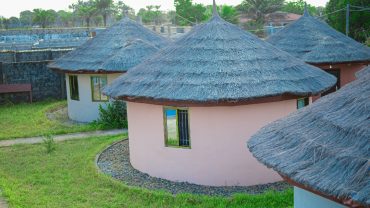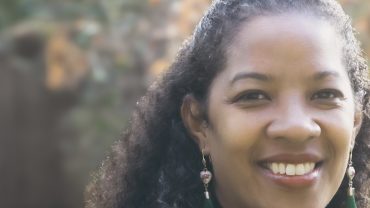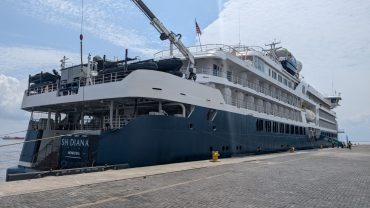Following the demolition of illegal structures in tourist area of Aberdeen, we decided to talk exclusively to the General Manager of the National Tourist Board – Mr Yassin Kargbo – to get current status and future plans for the area.
Visit Sierra Leone (VSL): How are you settling in to your new job?
YASSIN KARGBO (YK): Let me take the opportunity to welcome you to the National Tourist Board (NTB). I took office in January and in these nine months we have tackled a lot of issues. Prior to my arrival, we were receiving funding from the Enhanced Integrated Framework (EIF) of about $3m for tourism promotion. When I took office, I met this program had been suspended. I intervened and with the involvement of the ministry asked the donors for a four month no cost extension. This was granted and covers governance, marketing and other aspects of the NTB’s work. We are currently working with 5 eco-tourism sites to develop these areas. A grant of $100,000 has been approved for each site but initially, we are focusing on Tacugama Chimpanzee Sanctuary and River Number two. Part of this project also deals with the rehabilitation of the Tourism School as we recognise that service delivery is one of the main issues facing the growth of the industry. This will commence shortly.
Secondly, I felt some of the development around Lumley Beach area in particular was disorganised. This is not a slight on the previous administration. It is just that some individuals/businesses along the beach area were not adhering to the terms of their lease. We had a masterplan of the Lumley Beach. This is divided the beach into four zones: beach bars (1&2), recreational (3), activities (4). We also made allocation for parking in the different zones. We have prototype that shows the type of beach bars we want along the beach.
The decision was taken to demolish the existing structures along the beach. After we made the announcements, some individuals voluntarily demolished their structures but the rest chose not to. After the recent incident where a body of a young was dumped on the beach, there was an outcry from various stakeholders to take better control of the beach and increase security. This was the catalyst for the demolition of these illegal structures.
The 1st phase of the demolition was successful and we had no difficulties. We went as far as Tambakula, which if you remember was a hotspot for ebola a few months ago, so that place needed to be cleaned up anyway.
As we went into the creek (which also had serious ebola casualties), we started to encounter issues with people not wanting to vacate their premises. We understand that some of these people had been in these areas for quite a while but we had been sensitising them for many years and have documents to prove this. We believe they just didn’t think that there will come a time when the government would say enough is enough and finally act. They cried foul, and as this government is also about the people we have decided to put everything on hold and clean up the areas that have been demolished so it doesn’t look like a warzone. We will continue to sensitise them and make it clear that they have to leave these areas. We will included other ministries such as Lands and Social Welfare and other ministries and agencies like NACSA to help put a human face to the process.
VSL: The people that have been forced to leave their homes, where did they go?
YK: Actually, I have done some follow up. Some of them have moved to other places but others who have nowhere to go are in a nearby school. This is about 100-150 families. Government has decided to bring in other NGOs to do a count of the people that need immediate assistance. The count is important because of the economic difficulties people face, those unaffected by this issue might seek to benefit from any assistance being provided. We have appealed to international NGOs like WFP, Childfund and organisations targeted at women, to assist in cushioning this process.
VSL: Some people have questioned the timing of this, saying it shouldn’t have been done in the rainy season. Any comments on this?
YK: I understand this sentiment but there are always reasons not to do it. We have been discouraged to do it because it’s the holy month of Ramadan or because it’s the festive season. Other times, they begged not to be evicted. We have been postponing this issue for a long time but there is never a good time. We looked this the living conditions of these areas they are not habitable areas. You walk through water to get into their houses. Some people are sleeping less than five feet away from the water. Imagine what it’s like during the high tide. To protect against future catastrophe and enable proper tourism development to occur in these areas – it is sad – but we decided that this had to happen. There is never a good time, but there is always a time to make a decision.
VSL: What reassurance can people have that this will not happen again? I believe that such demolition has happened at least a couple of times before.
YK: This is decision of government and we are very resolute this time. We have enlisted the services of other government agencies such as NPA (National Protection Agency), The Police and Intelligence so that if any new structure emerges it will be immediately demolished. We want to avoid this because it’s bad for the industry. We’ll be doing leases for people to sign between the tourist board and the individual, this didn’t use to happen.
Oh really? You mean on the beach side because I was under the impression that the land on the other side had been leased to the individuals.
Yes this side (opposite side of the road) is part of development that was leased to them. Even in these cases many of these businesses have failed to comply with the terms of their lease. For example, development should have commenced within six months and completed within three years. There are cases when people have held on to undeveloped land for over ten years. In these cases such lands will be handed over to serious developers.
VSL: In terms of plan for the beach front, you have mentioned a prototype for beach bars. Will you give first option to people whose businesses have been destroyed as a result of this demolition?
YK: Yes. That’s the plan. Some of the players had no permission or documentation to support their existence.
VSL: I was under the impression that there was some sort of arrangement that you could sort of sublease from the owner of the property on the other side of the beach.
YK: We have tried to address this notion. We also realised that you make money faster on the beach front than developing the other side. It is also seasonal. We realised that some players also would have a lease and then develop a basic restaurant on the beach front, which they will operate only on peak times – whilst neglecting the property on the other side (of the road). So this time, we have taken back the beach front as this is ours. We will now have a legal document to support the existence of any structure on the beach front. This will protect any business that exists on that side. This will give confidence to people to invest.
VSL: To touch again really briefly on the cleaning. There is still debris on the beach from the last demolition which happened a few years ago. This is an exercise that is resource intensive and the scale of the demolition is huge. Will you be able to effectively carry this out to the point where it looks presentable?
YK: This is a task at hand. We have included other MDAs like Agriculture, Lands, EPA and NPA. We have even asked the military to help us with the cleaning exercise. We have been receiving some information about security threat. We are allowing the police to fully investigate this matter and give clearance before we can move into some of these areas. ** The concrete house you see
at the back of this building wasn’t there eight months ago. We advised the individual when he started, but he said he saw other people building that’s why he commenced. He has no legal right to be there. That area used to be where the original heliport was and is property of the National Tourist Board.
VSL: So, EBOLA. Being in the industry, we felt the effect of the Ebola outbreak full on. Firstly, I’d like to know from you, how long you think it will take for the industry to recover. Also, this issue goes beyond tourism. What sort of national plan exists that the National Tourist Board can be a part of and more specifically want can the NTB do to reverse the stigmatisation of Sierra Leone because of Ebola.
YK: You’re right this has caused a lot of problems especially for you as an operator. People won’t visit Sierra Leone as long as there is Ebola so I know you have been affected. Government has learnt from this and so too the National Tourist Board. There is a post ebola recovery programme which has been proposed. I have made a case for SMEs in the tourism industry and would like to make sure they benefit from any grants that may be made available. Currently I as speak we have lost two hotels to the banks. Kona Lodge and Leone Lodge have both been put up for sale and there is another hotel in Makeni that is under serious struggle. The banks obviously are after their loan repayments even though business is non-existent for these guys. So we are trying to advocate on behalf of these businesses that they are given additional time to repay these loans. We believe there should be a grants for businesses in the (tourism) sector or loans with very low interest rate to enable the sector to recover. We are putting this proposal together for the Chief of Staff who is handling the post ebola recovery programme. We have asked for $200m, to enable this to be channelled through us.
VSL: So how long do you think it would take for the sector to recover?
YK: I think we need at least one year after the country has been declared ebola free. The second year we can hope to start recovering. There are a lot of things that have to be put in place, for example the health sector needs to be sorted out.
VSL: If there is one thing that you would like to accomplish during your tenure. Your lasting legacy, what would that be.
YK: That’s a good question. I am actually currently pursuing it. I would like to transform the image of the Lumley and Aberdeen area into an area that is very attractive to tourists. There are other things such as sorting out the airport transfer and also service delivery. Sierra Leoneans are very hospitable, but often a bad experience at a hotel or restaurant can ruin the guests’ experience and change the perception of the country (so training is also very important). However, transforming the Lumley and Aberdeen axis is the one main thing I would like to accomplish.
VSL: Thank you so much for your time, I have a final question. Are there plans to replicate what is going on now in Aberdeen in other coastal areas? As these areas all have touristic value.
YK: Yes. I hastily say yes. Once we have Aberdeen right, the message will go out loud and clear to the other areas. Just close by here, Levuma beach, is slowly becoming a slum. We are also getting reports about such developments in Lakka. Our work here will let them take us more seriously when we ask them to leave. But as you know, you have to choose your battles wisely so for now we are focused on Lumley beach. Once we are successful we plan to expand to other areas. Apart from Freetown we are also working on eco tourism development for other areas of the country.
VSL: Thank you very much for your time.
YK: Thank you.




Comment (0)